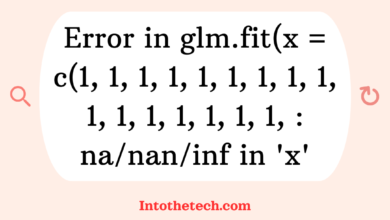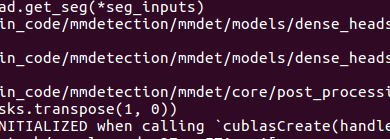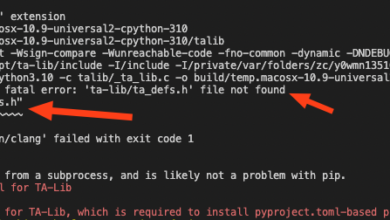Error in fun(x[[i]], …) : invalid ‘type’ (character) of argument
![Error in fun(x[[i]], ...) : invalid 'type' (character) of argument](https://techhelpbase.com/wp-content/uploads/2024/09/ech-28.png)
The error message “error in fun(x[[i]], …) : invalid ‘type’ (character) of argument” commonly occurs when dealing with R programming, particularly when users work with lists, vectors, or data frames. It signals that R is attempting to process data in a function that expects one type of input but is receiving another, specifically a character when it expects something else like a numeric or a list element.
The Nature of the Problem
This error typically manifests when functions designed to work with certain data types receive input that doesn’t match the expected format. For instance, many R functions expect numeric, integer, or list elements but might throw an error when provided with characters instead. This miscommunication between the input type and the function’s expectation triggers the error.
The keyword “error in fun(x[[i]], …) : invalid ‘type’ (character) of argument” pinpoints that the function call is failing due to mismatched data types. It’s essential to diagnose what kind of data the function expects and how it’s being supplied.
Common Causes
There are several scenarios in which this error may arise:
- Indexing Errors: When accessing elements within a list or data frame using double square brackets
x[[i]], the code expects a certain type at indexi. If instead of a numeric value or list, a character is found, the function throws the error. - Data Frame Operations: Sometimes, while manipulating data frames, users might expect a column to be numeric, but it’s read as a character, leading to the mismatch.
- Reading Data Files: R may misinterpret column types when reading from CSV or Excel files, leading to unintended character formats.
- Incorrect Type Conversion: Failure to properly convert data types can also trigger this error. For example, if a function processes numeric values but the input remains a character string, the error arises.
How the Error Manifests
The error “error in fun(x[[i]], …) : invalid ‘type’ (character) of argument” is usually accompanied by a breakdown in the expected output. Users may see:
- No Output or Partial Results: The function stops prematurely, especially during iterations like loops.
- Unexpected Behavior: Instead of the desired result, the program halts, and this specific error is displayed.
Many users on R programming forums have shared their frustration with this error, especially during data cleaning, statistical analysis, or automated processes where loops run over lists or data frames. A common sentiment is that this error tends to pop up unexpectedly, often due to minor issues with data preparation.
Real-World Examples
Let’s consider a few examples to illustrate how the error may occur:
- Accessing Data from a List: Suppose a user attempts to run a function on elements within a list
x. If the list contains mixed data types (e.g., characters and numerics), an error might appear when processing certain elements.x <- list(1, "two", 3) for(i in 1:length(x)) { result <- fun(x[[i]]) }In this case, the functionfunexpects numeric values, but encounters the string"two", resulting in “error in fun(x[[i]], …) : invalid ‘type’ (character) of argument”. - Reading CSV Files: When importing a dataset, sometimes numeric columns may be inadvertently treated as characters due to incorrect reading formats:
data <- read.csv("data.csv", stringsAsFactors = FALSE) # The column 'age' might be read as character instead of numeric result <- fun(data$age)Iffunis a function designed to work with numeric values, butdata$ageis interpreted as character, the error will occur.
Step-by-Step Guide to Resolve the Issue
Here’s a practical guide to troubleshoot and resolve the “error in fun(x[[i]], …) : invalid ‘type’ (character) of argument”.
1. Check Data Types
Start by verifying the data type of the object causing the issue:
str(x[[i]])
class(x[[i]])
This command will show what data type the variable is holding. If it’s a character but should be numeric, proceed to convert it.
2. Convert Data Types
Ensure the object is of the correct type. If it’s character, you can convert it to numeric using:
x[[i]] <- as.numeric(x[[i]])
Similarly, for data frames:
data$column <- as.numeric(data$column)
3. Clean Data Inputs
It’s possible that some data entries contain non-numeric characters (like letters or special symbols), preventing conversion. You can identify problematic entries with:
non_numeric <- x[!is.numeric(as.numeric(x[[i]]))]
You can clean or remove these problematic values before processing further.
4. Modify Function Call
Sometimes, modifying the function itself to handle multiple data types can prevent the error. For example:
fun <- function(x) {
if(is.character(x)) {
x <- as.numeric(x)
}
# Rest of the function code
}
5. Check Data Import Methods
If the problem arises from reading a CSV or another data file, ensure you’re using the correct options. For example, explicitly set stringsAsFactors=FALSE to avoid unwanted type conversions.
Preventing Future Issues
To avoid running into “error in fun(x[[i]], …) : invalid ‘type’ (character) of argument” in the future, consider the following tips:
- Consistently Check Data Types: Before applying functions or operations on data, always verify the types using
str()orclass(). This will help catch issues before they break the code. - Use Defensive Programming: Design your functions to check input types and handle cases where types do not match expectations. This can include converting types or raising informative error messages.
- Ensure Proper Data Import: When importing datasets, always double-check the default settings of your import function. Use arguments like
stringsAsFactors=FALSEand specify column types if necessary to prevent unwanted conversions. - Test Your Code: Always test your code with different types of inputs. Include edge cases like empty lists, mixed data types, and incorrect values to ensure your functions handle various situations gracefully.
By following these preventive measures, you can significantly reduce the likelihood of encountering “error in fun(x[[i]], …) : invalid ‘type’ (character) of argument”.




